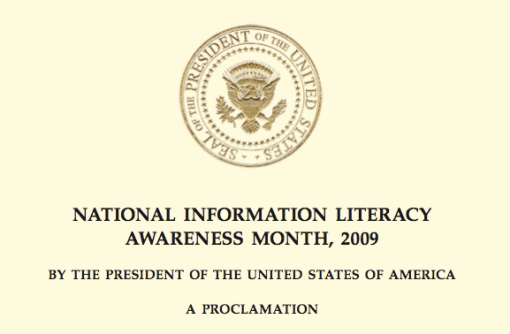“None of us really knows how to live in this era of media convergence, collective intelligence, and participatory culture. . . we should not assume that someone possesses media literacy if they can consume but not express themselves.”
–Henry Jenkins, Convergence Culture (2006.)
We are living in a time of enlightenment. In our present time, media is being put into the hands of the people in the most democratic fashion we have seen possibly ever in modern history. Larry Lessig refers to this as the, “revitalization of the read write culture,” which exists in stark juxtaposition to the “read only culture.” In the “read write culture” participants are encouraged through a democratic processes to engage, create, and share their world with a global community. Henry Jenkins expresses these ideals as well. No wonder then that in this birth of the information age, the most forward thinking leaders of the world are turning to literacy, in both the old and new forms, as the tool of exploration. We are growing in ways that no one can predict where we are headed. However, it is clear that the old ways will not suffice and that as world citizens we all have a unique responsibility to get on board this train. Earlier this month, President Barack Obama proclaimed October 2009 as Information Literacy Awareness Month. Backed by clear research into the most progressive forms of education, Obama is calling on the citizens, the schools, and the business’ of our country to join the growing wave of information. In his proclamation Obama declares, “Rather than merely possessing data, we must also learn the skills necessary to acquire, collate, and evaluate information for any situation.” This is the “read write culture” of today. No doubt that other enlightened Americans would also agree. Thomas Jefferson in a letter to Richard Price, 1789, said, “Whenever the people are well-informed, they can be trusted with their own government;… whenever things get so far wrong as to attract their notice, they may be relied on to set them to rights.” Jefferson also stated, “An informed citizenry is the only true repository of the public will.” We hold these truths to be more applicable to in our world today than ever before. Today alone there was over 9,000 hours of YouTube material uploaded, according to figures run by Michael Wesh. Hence, information is growing massively all the time, and as our access to this information likewise expands, we must engage in this process as responsible citizens living in a democratic time.

“And say, finally, whether peace is best preserved by giving energy to the government or information to the people. This last is the most certain and the most legitimate engine of government. Educate and inform the whole mass of the people. Enable them to see that it is their interest to preserve peace and order, and they will preserve them. And it requires no very high degree of education to convince them of this. They are the only sure reliance for the preservation of our liberty.” –Thomas Jefferson to James Madison, 1787.
Vodpod videos no longer available.
Recent Comments